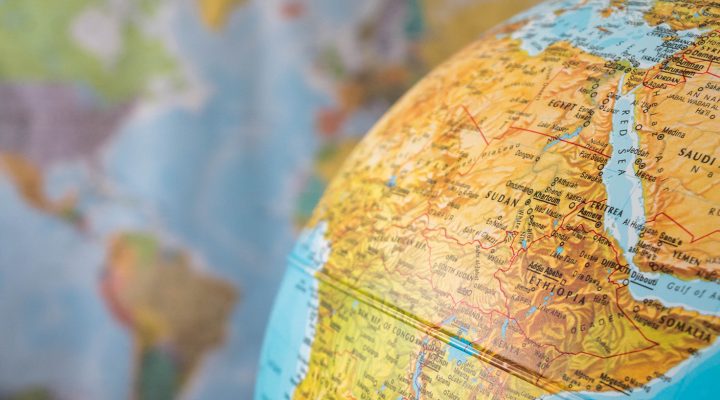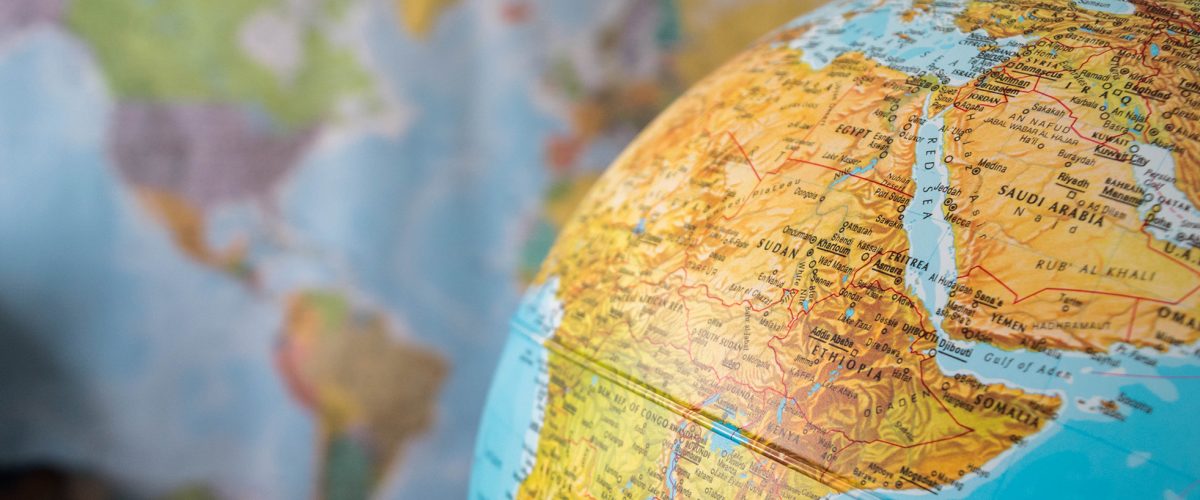Growing up a Baptist pastor’s kid in East Texas, Bob Roberts found himself in church a lot. That time allowed him to develop a love for the church, eventually landing him at Baylor University and then Southwestern Baptist Theological Seminary, where he was planning on becoming a global missionary.
Instead, he planted Northwoods Church in Keller, Texas, part of the Dallas-Fort Worth Metroplex. More than 200 church plants have come out of Northwoods, many located within just a few miles of the mother church.
Later, Roberts became the founder of GlocalNet, a ministry dedicated to mobilizing the church to bring about transformation in the public square. He also is co-founder of the Multi-Faith Neighbors Network, an organization committed to promoting religious freedom through intentional cross-cultural relationships. Finally, Roberts is the founder and chairman of Glocal Ventures Inc., which is dedicated to holistic socio-economic development in Vietnam.

Bob Roberts
Roberts was invited to go to Afghanistan after 9/11, and so in February 2002, he traveled there to do humanitarian work. Through a series of “accidental” encounters, he became friends with one of the top leaders of the southern half of Afghanistan who was Muslim. The man knew Roberts was a pastor, and through that relationship, they began to connect young pastors in America with young imams in Afghanistan. Eventually they built schools and clinics throughout Afghanistan and a ministry to bring together the three world religions descending from Father Abraham for peace was born.
It is this experience that allows Roberts to provide insight into the current conflict in the Middle East.
On Israel
“God loves Israel, and we should too,” Roberts said. “And I’m so grateful for the Old Testament, the Hebrew Scriptures, the prophecies of Jesus to come, the truths, the values.”
The point of the Old Testament “was a nation following God, what it looked like when she followed God and facing the judgment of God when she didn’t,” he explained. “And God loves Israel and has never stopped loving Israel, but Israel was never to be the only nation that God would show his light through, through the Messiah.”
The whole point of the New Testament books of Galatians and Ephesians “was that the Messiah, who would be Jewish, would come from the least of all nations to be a light to all nations.”
Because of that, we get to “share in the promises of what God wants to do in Israel, every single nation,” he continued. “So, the mystery of the gospel in Ephesians is that it’s no longer a single nation, but it’s all nations. And it’s no longer about a nation, but it’s about the kingdom of God. And it’s not about Christian nations, it’s about Christians in every nation being salt and light to lift up the name of Jesus, the kingdom of God. And when our geopolitical support for Israel is based on Old Testament passages, speculative theology in the New Testament, instead of human rights and human dignity, when we fail to love the Jews because they are human beings created in the image of God that deserve a nation state, then we have minimized them, marginalized them and not seen them for the human beings and the people of God. That they are among the nations.”
“We are reversing all that Jesus accomplished on the Cross,” Roberts declared. “We are invalidating all he did in the fulfillment of the prophecies and of the institutions of Judaism. And we are marginalizing and minimalizing what Jesus did for all nations. So, we should love Israel, we should support Israel. But based upon they’re one of many nations. And God loves all the nations.”
In America, Israel holds a favored nation status, and one reason for that is the role of evangelical theology, particularly dispensational premillennialism, he noted. “There’s a real danger in what we’ve done to our eschatology because it’s driven more by hundreds of preachers, personal interpretations taken out of context instead of consistent historical biblical theology.”
“I don’t want to stand before God one day with thousands of little children that were blown to smithereens and say it was a just war. I’ll let God determine that.”
Many Christians have turned this conflict into a just war, Roberts said. “We’ve developed charts, built bunkers given just-war covering for people to go in and bomb others. And for me, that’s a very scary thing. … I believe people should be able to retaliate and defend themselves. Nations must have the right to defend themselves, but I will never say this is a just war. I don’t want to stand before God one day with thousands of little children that were blown to smithereens and say it was a just war. I’ll let God determine that.”
On the Palestinians
Who makes up the nation of Palestine and the West Bank region?
“No. 1, they’re everyday people like you and I, but the narrative has been hijacked by extremist groups,” Roberts explained. “The Palestinian Liberation Organization modified, and when they did modify and cease to do terrorism, it led to nothing. So that gave rise to another group called Hamas. And there’s many other groups besides Hamas.
“No. 2, they are people who’ve lived in an oppressed state and everybody who can leave has pretty much left.
“No. 3, there’s a huge population that have been Christians. But that’s dwindling because if you can leave and get out, you’re going to. So, what we fail to understand is the Palestinian Christians, and evangelicals in particular, view themselves as the people positioned in the Middle East and the Arab world to fulfill the Great Commission like nobody else. And we have marginalized them.”
“We’ve actually drained the Middle East of the very people who’ve wanted to fulfill the Great Commission and could do the best job of doing it in the Middle East.”
“Because we’ve not supported them (the Palestinians), we’ve actually drained the Middle East of the very people who’ve wanted to fulfill the Great Commission and could do the best job of doing it in the Middle East.”
What is the impact on those Christians in Palestine and the West Bank? It has made it difficult for the church there to share the story of Jesus and fulfill the Great Commission, he said.
“While evangelical pastors were celebrating the move of the American embassy from Tel Aviv to Jerusalem, I was with 15 of the top pastors and top evangelical leaders in the West Bank. And their hearts were broken. We just made it a thousand times harder for them to speak to issues.
“Do you realize how hard it is for them to be pastors in the West Bank with Jews on one side, Muslims on the other? We continue to strip their credibility away, destroy their platform to lead their churches while we support Israel, which we should. We just should equally support the Palestinians.”
On peacemakers
One thing Roberts is clear about is the need for Christians to be peacemakers.
“We want to be soul winners, but we don’t want to be peacemakers,” he lamented. “And the reality, the two are inseparable, but we have ignored peacemaking. And as a result, we have no credibility to be soul winners to the Palestinians because although we’ve acknowledged the injustices of the Jews, we have failed to acknowledge the injustices to the Palestinians.
“It’s the politicians who use this for their own power, money, control and interest.”
“If you look at polls before the war, the Palestinians want peace. The everyday Palestinians, so do the everyday Jews. They’re not against living with one another. It’s the politicians who use this for their own power, money, control and interest.”
What else can pastors do? “No. 1, to pray, I would publicly from the pulpit say, ‘I do support Israel and I pray they have to be secure. So, they have to deal with things. So, let’s pray for Israel. I do support the Palestinians. They should also have a nation. So, we’re going to pray for the Palestinians as well.’”
Roberts notes: “Your church members give to a lot of people outside your church. I would identify an Israeli and a Palestinian, or somebody who works with both groups. Encourage them to give, encourage them to pray. And I would also say this, supporting Israel and Palestine gives neither one of them a pass on bad behavior.”
Also, pastors should build relationships with rabbis and imams and learn how to work together, he advised.
“If you need help with how to work with Jews and Muslims, that’s who we work with at Multi-faith Neighbors Network. So, if you have a pastor, imam and a rabbi, and you want to come to one of our retreats that we do, we’ve got about eight we’re doing next year. We’ll let you come so that you know how to be in relationship with all of them, not just one of them.”
While Hamas has kidnapped people and killed people, Israel does not have clean hands either, Roberts said. “It should bother every Jesus-loving evangelical that 2,000 little babies, 1,100 women have been blown to smithereens in Gaza. That ought to bother us. That does not prevent Israel from being able to address Hamas. But neither does it give a blank check to slaughter people, not provide medicine, not provide drinking water. There are too many things that can be done that are not in the way of Israel making a response.”
Related articles:
Maybe there are some ‘good guys’ in this war after all | Opinion by Mark Wingfield
Holding two truths together | Opinion by George Mason
WWJP? A checklist for testing the Christlikeness of your pastor’s ‘sermon’ about Israel | Opinion by Brad Bull


